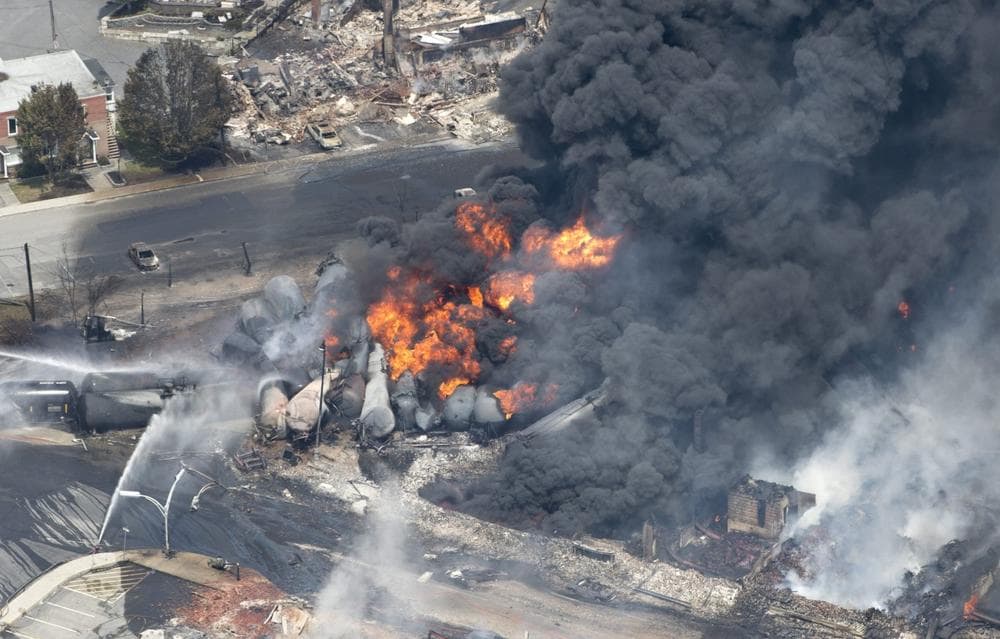Advertisement
Lessons From Quebec Disaster About Hazardous Cargo Transit In New England
Resume
The catastrophic explosion of a freight train last weekend in Quebec has raised fresh questions — here in New England and across the nation — about the safety of rail lines and the transportation of oil and other hazardous cargo.
As many as 50 people are dead or still missing five days after a runaway train loaded with crude oil jumped the tracks and exploded in a series of enormous fireballs, devastating the center of the village of Lac Megantic, Quebec, just north of the Maine border.
The tragedy has drawn attention to the growing reliance on trains to haul increasing amounts of oil across New England and the nation. According to the American Association of Railroads, just five years ago, trains hauled about 10-thousand carloads of crude. Last year, they hauled almost 25 times that amount. So the questions is, are rail lines safe to carry such a load? Was the Lac Megantic tragedy an aberration or a warning?
Guests
Daniel Bitonti, reporter for The Globe and Mail
Kate Colarulli, deputy director of the Sierra Club's Beyond Oil Campaign
Christopher Parker, executive director of the Vermont Rail Action Network
This segment aired on July 11, 2013.